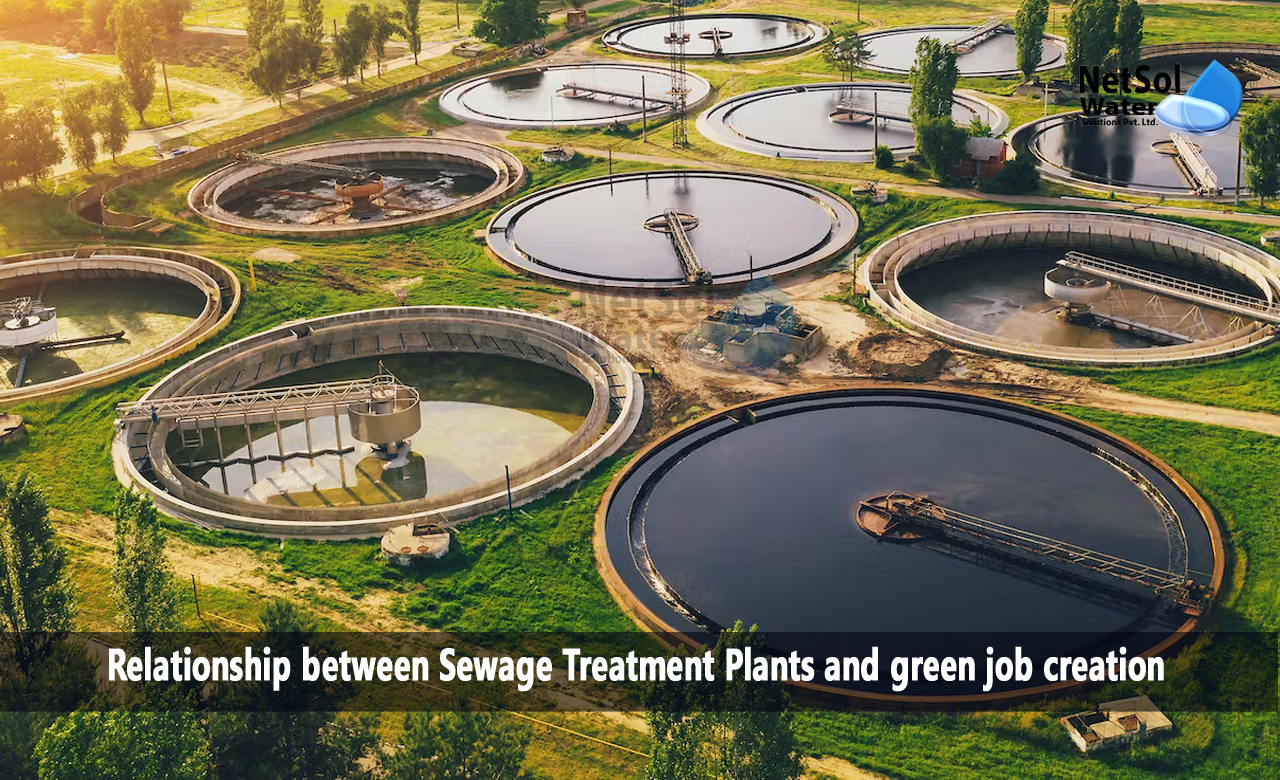Relationship between Sewage Treatment Plants and green job creation
Sewage treatment plants (STPs) are crucial for managing and treating wastewater, safeguarding public health, and preserving the environment. Beyond their essential function, STPs also present significant opportunities for green job creation. The wastewater sector offers diverse employment prospects that contribute to sustainability and the transition to a greener economy.
In this blog post, we will explore the relationship between sewage treatment plants and green job creation, highlighting the various career opportunities available in the wastewater sector.
The Importance of Sewage Treatment Plants:
Sewage treatment plants are essential in treating domestic and industrial wastewater, ensuring the removal of pollutants and contaminants before releasing the water back into the environment. By promoting proper sewage treatment, STPs protect ecosystems, prevent waterborne diseases, and promote the sustainable use of water resources.
The Growing Demand for Green Jobs:
The global shift towards sustainability and the green economy has created an increased demand for green jobs. Green jobs are employment opportunities that contribute to environmental preservation, resource efficiency, and the reduction of carbon emissions. The wastewater sector offers a wide range of green job opportunities that align with these objectives.
Job Roles in the Wastewater Sector:
- Wastewater Treatment Plant Operators: These professionals are responsible for operating and maintaining STPs, ensuring the efficient treatment of wastewater and compliance with environmental regulations.
- Environmental Engineers: These engineers design and optimize wastewater treatment systems, integrating sustainable practices and technologies.
- Water Quality Analysts: These professionals monitor and analyze water samples, ensuring compliance with water quality standards and identifying potential pollution sources.
- Research and Development Specialists: These experts focus on developing innovative wastewater treatment technologies, improving efficiency, and minimizing environmental impact.
- Sustainability Managers: These professionals oversee sustainable practices within STPs, promoting resource conservation, energy efficiency, and waste reduction.
Skills and Qualifications:
A strong foundation in science, engineering, or technical fields is essential for various roles in the wastewater sector. Understanding environmental regulations, water quality standards, and sustainability principles is vital. Problem-solving, analytical skills, adaptability, and a commitment to continuous learning are necessary to address complex wastewater treatment challenges.
Benefits of Green Jobs in the Wastewater Sector:
Green jobs in the wastewater sector contribute directly to environmental sustainability by preserving water resources and protecting ecosystems. The expansion of the wastewater sector stimulates economic growth, creating employment opportunities and contributing to the local and national economy. Careers in the wastewater sector offer long-term job security and stability due to the constant need for wastewater treatment. Additionally, these jobs provide opportunities for professional development and specialization.
Conclusion:
Sewage treatment plants not only play a vital role in wastewater management but also offer significant opportunities for green job creation. The wastewater sector provides diverse career paths that contribute to environmental preservation, resource efficiency, and the transition to a greener economy. Pursuing careers in the wastewater sector allows individuals to make a positive impact on society while enjoying long-term job security and professional development. As the world embraces sustainability, investing in green jobs within the wastewater sector is a promising pathway towards a more sustainable future.




